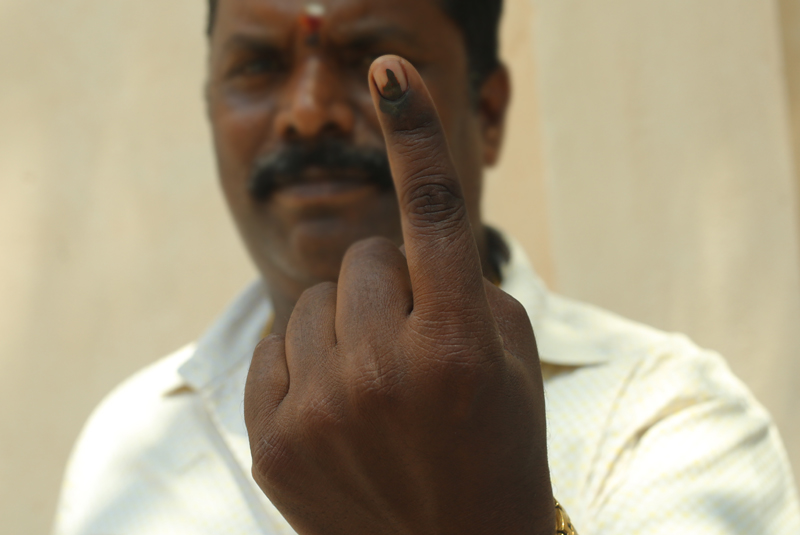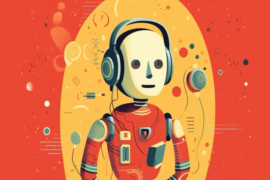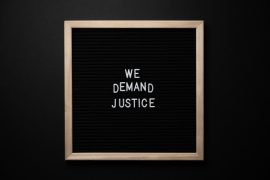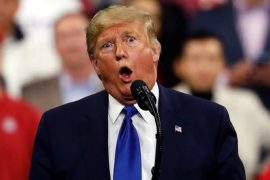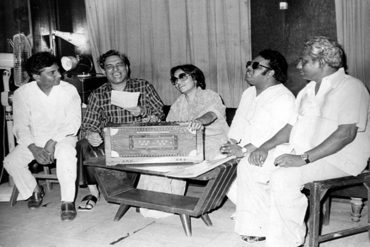India’s 2024 election results are perhaps the most eagerly awaited in recent times. These elections, held over forty-four days in seven phases, are the most long-drawn-out since the first general elections held in 1951-52. They are also, perhaps, the most crucial since 1977, not only in terms of their significance to the future of constitutional democracy but also to the preservation of social harmony and communal peace in the country. Too much is at stake for the ruling BJP and the opposition INDIA alliance.
The BJP, which has come to enjoy unbridled power based on authoritarian, divisive and majoritarian politics over the last ten years, will be loathe to lose power and be at the receiving end of a hitherto tormented opposition. Fears are openly being expressed about whether a peaceful transfer of power would be allowed in case of an unexpected opposition victory.
Opposition parties fear that if the BJP wins another term, it will drastically dismantle the present constitutional scheme of things to formalise a theocratic, authoritarian state; it will be a ‘one nation-one party,’ making the political parties irrelevant.
The stakes involved in this almost ‘do or die’ contest are evident from the way all principles of fair play and political decency were thrown to the winds by unleashing the law enforcement agencies to keep two opposition Chief Ministers in jail and starving the main opposition party of funds during the campaign period. A new political low was reached when the country’s Prime Minister took recourse to communally charged rhetoric against a section of his own countrymen.
The non-BJP parties are well aware that they are fighting for their existence and relevance in the polity. It is apparent from the compromises the main opposition party was willing to make to cobble up a shaky coalition — how Navin Patnaik decided to plough an independent furrow, how the CPM, the Congress and the Trinamool found it expedient to project a semblance of unity while fighting one another to safeguard their individual turf.
The BJP perhaps underestimated the tenacity of the Congress Party and its leader, Rahul Gandhi. Despite all the attempts at splitting parties, poaching leaders and the blatant use of money and muscle, it could not thwart an alliance of opposition parties coming together with the minimum objective of throwing the BJP out.
For the first time in recent years, the opposition managed to snatch the initiative from the ruling party and influence the narrative a few times. It succeeded in bringing issues of unemployment and social justice to the fore and put the BJP on the back foot, exposing the ruling party’s tendency to sweep inconvenient issues under the carpet.
By making the caste census a poll issue, the opposition sent the BJP on a scramble to revise its stand on the issue, trying hard to dispel the public perception of its upper caste bias. References to the growing inequality and crony capitalism (with official support) touched a raw nerve such that Narendra Modi had to raise imaginary bogeys of a Congress deal with Adani and Ambani and a Congress plan to snatch away mangalsutras of Hindu women and distribute the wealth to ‘infiltrators.’
Arvind Kejriwal took a leaf from the Modi playbook and asked if the latter would relinquish power upon reaching the age of seventy-five, turning the table on him and stirring up memories about some discarded BJP veterans.
That the tide could be turning and BJP would be hoisting with its own petard became obvious when the Supreme Court declared the electoral bond scheme as unconstitutional, granted bail to Arvind Kejriwal, who was arrested while the election process was underway, and released NewsClick editor Prabir Purkayastha, declaring his arrest under the Unlawful Activities (Prevention) Act as illegal. That it took so long for justice to stir in these cases is another matter which calls for some introspection.
The low turnout of voters in these elections has been a cause for worry for the ruling party. The opposition parties and civil society have vehemently criticised the Election Commission’s adamant refusal to publish the booth-wise voting figures within forty-eight hours of polling. The Supreme Court chose to repose a touching faith in the Election Commission on this as well as the issue of VVPAT verification, ignoring the need to ensure complete transparency and public confidence in election matters.
The failure of the Election Commission to do anything about the repeated violations of the model code of conduct by Modi has reinforced the perception that the Commission has also turned into a ‘caged parrot.’ The enactment of recent legislation that enables the government to handpick the Election Commissioners has strengthened this perception. In March 2023, a Constitution Bench of the Supreme Court directed that the Election Commissioners shall be selected by a committee consisting of the Prime Minister, the Leader of the Opposition and the Chief Justice of India pending enactment of legislation. In December 2023, a new enactment was made under which these appointments will be made by a committee consisting of the Prime Minister, the Leader of the Opposition and a Union Cabinet Minister nominated by the Prime Minister.
Irrespective of the election results on June 4, the liberal and secular forces in the country, who have been fighting a largely losing battle ever since the BJP came to power, must reconcile to a long struggle. Their worst fears will come true if the BJP manages to achieve a two-thirds majority.
No one seriously expects an outright victory for the opposition. The most optimistic prediction for them is a reduced strength for the BJP, which will make it dependent on other parties to form a government. That wouldn’t be a problem for the party since they have enough money and resources to cobble up a majority. However, it is hoped that in such a situation, they would be forced to tone down the communal agenda and go slow with any plans for a drastic dismantling of the basic structure of the Constitution.
This would be a relief for the time being. However, it would only postpone the day of reckoning as the BJP is unlikely to abandon its declared agenda.
It is also possible that the present allies of the BJP may abandon the ship if they find it will sink. If the Modi magic fails, internal fissures may surface in a party that has submitted itself to the stranglehold of one man for so long to stay in power.
In the unlikely event of the INDIA alliance forming a government with or without Mamata Banerjee, the minorities in the country, especially Muslims, will be able to breathe easily. The Citizenship Amendment Act may be repealed or further amended to make it non-discriminatory. Nothing will be done that is likely to cause any annoyance to the majority community.
Crony capitalists need not have any worries either. They are genetically programmed to adapt and change their spots. There will be welfare schemes, as usual, and some new initiatives to tackle unemployment. But it will certainly not be the dawn of a brave new world.
It is unlikely that any of the draconian powers acquired by the government over time will be relinquished. Nor is it likely that any meaningful steps will be taken to free key constitutional authorities and investigation agencies from government control. These powers will come in handy for some retributive politics, the temptation for which would be irresistible. Power and control are rarely given up voluntarily.
Ultimately, people alone are the guardians of democracy and freedom, not political parties. Politicians and political parties thrive on power and control, even of the illegitimate kind, if it helps to secure their interests. They can be held in check only through constant public scrutiny and robust and independent institutions bound by the Constitution and laws and not beholden to the ruling establishment.
Considering that most of these institutions have been under a cloud for some time, the task before the liberal-democratic-secular forces in the country is daunting. Only under strong public pressure are political parties likely to take up the task of institutional reform. The judiciary and an independent media are possibly the only allies for the citizens in this task despite all the challenges and limitations these institutions are subject to from time to time.
The biggest challenge, and perhaps the most crucial one, is institutional reform of political parties. In a constitutional democracy, there is no place for political parties functioning under dynastic and oligarchic principles. There must be institutional mechanisms to enforce genuine internal democracy and constitutional functioning within political parties to ensure that the elected legislators truly represent the voice of their constituents.
But who will bell this cat?
-30-
Copyright©Madras Courier, All Rights Reserved. You may share using our article tools. Please don't cut articles from madrascourier.com and redistribute by email, post to the web, mobile phone or social media.Please send in your feed back and comments to [email protected]

